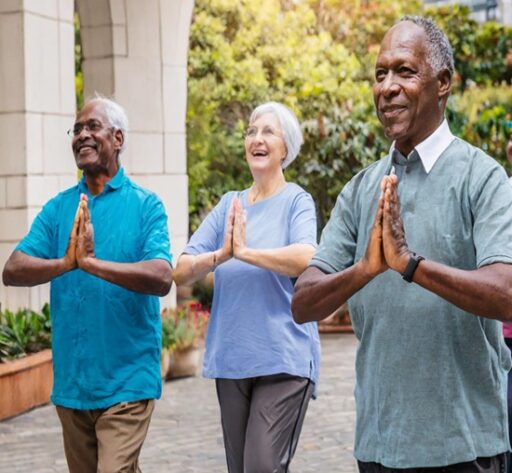As the global population ages, the gap between increased life expectancy and declining physical function is widening. This discrepancy emphasizes the importance of improving the quality of life for older adults. While physical exercise has been widely recognized as an effective way to enhance overall health, mind-body exercises such as Tai Chi, Baduanjin Qigong, and Yi Jin Jing offer distinct advantages for older adults.
These ancient practices focus not only on physical movement but also on mental concentration and breath control, making them particularly suitable for this demographic.
The Connection Between Mind-Body Exercises and Quality of Life
Research has consistently shown that engaging in mind-body exercises positively impacts the quality of life for older adults.
A study involving 1,087 older adults from Beijing found that Tai Chi, Baduanjin Qigong, and Yi Jin Jing were significantly associated with improved quality of life, and this effect was mediated through perceived social support and psychological resilience.
In other words, these exercises not only improve physical health but also foster a sense of community and emotional strength, which are essential for well-being in later years.
The Role of Social Support and Psychological Resilience
One of the most striking findings from the study is the chain mediation effect between mind-body exercises, perceived social support, and psychological resilience. The study suggests that Tai Chi and Baduanjin Qigong improve older adults’ quality of life by enhancing their social support networks and psychological resilience.

- Perceived Social Support: Mind-body exercises like Tai Chi and Baduanjin Qigong are often practiced in group settings, which fosters a sense of community among participants. The social interactions that occur during these sessions provide emotional support and strengthen relationships. This perceived social support is a protective factor that buffers against stress and negative emotions.
- Psychological Resilience: The study found that higher levels of perceived social support contribute to increased psychological resilience. Older adults who feel supported by their family, friends, or community are better equipped to handle life’s challenges. Tai Chi and Baduanjin Qigong promote resilience by encouraging participants to adopt a positive outlook and effective coping strategies, which in turn leads to higher life satisfaction and overall well-being.
Conclusion
Mind-body exercises offer a holistic approach to enhancing the quality of life for older adults. By improving physical health, fostering social connections, and building psychological resilience, practices like Tai Chi and Baduanjin Qigong address the multifaceted needs of an aging population. As we continue to face the challenges of global aging, incorporating these exercises into healthcare can help older adults lead healthier, more fulfilling lives.